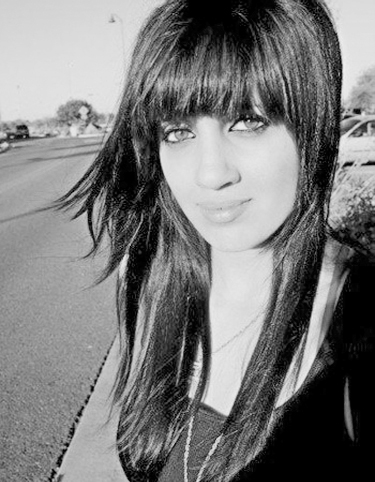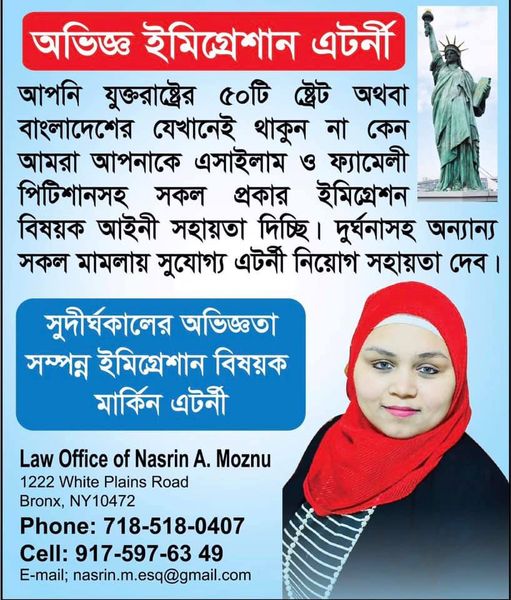Honour killing in Arizona


Zeenat Khan : This past December 24th was Noor Almaleki’s birthday. Had she lived she would have been 25 years old. In November 2009, when the sun shed its golden light on the deserts of Arizona, USA, 20-year-old Noor with ‘hauntingly beautiful eyes’ and ‘long black hair’ was lying motionless on the sidewalk, her face crushed. She suffered massive brain injury, her spine and bones broken.
Noor was walking to a coffee shop with another older family friend named Amal. Her father, Faleh Hassan Almaleki, a 50-year-old unemployed Iraqi immigrant came out of nowhere and struck her with his jeep at 30 mph speed. He crashed his jeep into the two women. Noor was tossed into air and landed on the sidewalk. Faleh then swerved and repeatedly ran over his daughter. Amal was also badly injured.
As Noor lay on the sidewalk bleeding, Faleh reversed and drove towards Mexico border.
The news shocked Arizona and the rest of the nation. This heartless act of violence was an attempt to carry out ‘honour’ killing for Noor defying her father’s wishes. She was considered ‘tainted’ by her family for leaving an Iraqi man that her father had chosen for her. Faleh was angry that Noor afterwards became too westernized and she dared to abandon ‘traditional Iraqi values.’
Faleh pre-packed his American passport, a suitcase full of clothes and his week’s supply of insulin before killing his daughter. He managed to remain a fugitive for a few days, sold his jeep and boarded a London-bound plane. At Heathrow airport, he was apprehended by the immigration officials when his name turned up on the most wanted list. He was arrested and was sent back to the United States to face trial.
According to an AP report, Noor remained comatose for about two weeks. On November 2nd at 7:00 am, the doctors at John C Lincoln North Hospital in Phoneix, Arizona, pronounced her clinically brain dead. Her mother Sheham and brother Ali decided to take her off life support and Noor stopped breathing at 11:54 am. ‘Her beautiful eyes were swollen and remained shut.’
Almaleki’s trial started after two months and he was sentenced to 34 years in prison, a maximum penalty that the Arizona Department of Corrections allows for a second-degree murder conviction. After Noor died, the prosecutors changed Almaleki’s charges from aggravated assault to murder in the 2nd degree.
After the sentencing the state attorney Bill Montgomery said, ‘The killing of one’s own child is more than just a violation of the law, it is an offence against parenthood itself, and the awesome responsibility parents have for nurturing and protecting their children.’
As far as I know Islam doesn’t sanction ‘honour’ killings; such a barbaric custom predates most religions. In some anti-Muslim blogs a lot of people were condemning Islam and were demanding Faleh’s execution.
Though ‘honour’ killing is not pervasive in the United States, it is however a chilling new trend and the threat remain very real. ‘For the last five years there has been at least one case of ‘honour’ killing each year in a different US city.’ It is becoming an alarming issue throughout the western world among the immigrant families.
The UN estimates that about 5,000 women die every year in the name of ‘family honour.’ The number of deaths in the US is not known because there are no data-collecting mechanisms available. Mostly the immigrants from the North Africa and Middle Eastern origins brought this savage practice to America.
This barbaric cultural and tribal practice originated in the Middle East namely in countries such as Albania, Iraq, Jordan, and Turkey. This cruel practice is also carried out in Egypt, Afghanistan, Pakistan, Sri Lanka and India. In India and Pakistan there are about 1000 ‘honour’ killings that are reported per year. ‘The levels of such crime are less known in Bangladesh, but there have been cases in diasporic communities. So there is a potential risk there.’
Faleh Almalaki’s brutal murder of his young and beautiful daughter falls into the category of a typical ‘honour’ crime in the Middle East. According to Farhana Qazi, an award winning lecturer and writer on conflicts in Muslim World, ‘Many Muslim men view their honour through their women. Some Muslim families settled in America still carry this cultural baggage. While they live on American soil, they loathe accepting American customs and values. They see it as a threat to their culture and creed.’
In North America, the prosecutors often confuse the incidents of ‘honour’ killings as domestic violence cases because they fail to understand the Muslim culture. They disregard the facts that young women are being targeted by their biological families and are being murdered to preserve family ‘honour.’ It is also noteworthy that in the past such killings have been largely ignored by national media here in the US.
In American judicial system, such a crime is considered premeditated murder, not a passion of crime. These kinds of tribal practices are carried out against women who are raped, committed adultery, wanting to leave an abusive spouse, had loved the wrong person, talked to a strange man, for wearing western style clothing, listening to rock music, wearing makeup or even for refusing to wear a headscarf.
Since Noor’s murder, some non-profit organizations are working with law enforcement and teaching them how to recognize warning signs of ‘honour violence.’ The law enforcement now understands that there is no ‘honour’ involved in killing a girl for disobeying her family’s wishes. After Faleh’s guilty verdict Arizona police detective Christopher Boughey said, ‘Honour’ violence isn’t a race issue. It’s a human rights issue.’
Usually a father, an older brother, an uncle or a first cousin with consent from other family members carry out such a ghastly act. A mother often lures the victim in the house. Their rationalization is: by getting raped or by leaving a marriage that woman has apparently ‘dishonoured’ the family. They are looked as ‘worthless’ in the family because they cannot be married off and perceived as a burden to that family. Every year in the Muslim world hundreds of women die such horrific deaths when they supposedly ‘tarnish’ the family name and bring ‘dishonour’ to their respective families.
Usually a knife, a gun, a machete or strangulation are some of the choices to murder the woman. About three years ago in Iraq, a 19-year-old victim of ‘honour’ killing was stoned to death in a public square for talking to a British solider. Around the same time a 16-year-old Turkish girl was buried alive by her father for talking to boys. This past November a Pakistani girl named Shahida in Karachi was shot at the back and killed by her missing sister’s vengeful in-laws in the pretence of adultery. It happened because her mother refused to have her married to another son in that family for she sensed foul play in the disappearance of her older daughter Khalida.
After living in the United States for sixteen years, at age 17, Noor was forced into an arranged marriage in Iraq with an older cousin. Since she grew up in the States and went to school with other American kids, her outlook and value system was quite different from the traditional system that is in place in her native Iraq. Unable to cope with so many restrictions there, Noor came back to the States to her family.
Upon her return a tumultuous relationship with her father started and she became extremely fearful of him. According to media reports Faleh tormented his daughter day in day out for disgracing the family name by leaving her marriage. Her happiness was not something he was concerned about. Instead Noor became a pariah to her family who had stained the family name.
Faleh constantly harassed Noor for not upholding the ‘traditional’ Iraqi values. From this man’s cultural perspective, a daughter is a father’s ‘property’ and she must do what he decides for her. In his mind he felt that such disobedience has to be dealt with as his traditional custom calls for it.
I had read that in Arizona, Noor lived in a house on a street lined with palm trees. Inside the house, like many immigrant kids in America, she lived a double life. At home she had to be obedient, and took care of six younger siblings when her mother left for California after a company hired her as a translator. There she helped to prepare the American soldiers adjust in a new Iraqi culture. It is a sad irony that she had failed her own daughter miserably in helping to balance the old traditional culture with the new. With his wife away, Faleh, an out-of-work truck driver continued with his tirade.
Unable to deal with his insults and abuse, Noor left her parent’s house and moved in with the family of her boyfriend Marwan Alebadi. His mother Amal took her in when she refused to go back to her father’s house. That became a breaking point for Almaleki. He viewed his daughter as a ‘small fire’ that needed to be extinguished; her defiance had to be dealt with.
Noor, a part-time student in a Community College, was a typical all-American girl. She used to post photos on Explore Talent.Com, a site for aspiring models for modelling assignments. When Faleh found out he became extremely irate.
Noor played tennis in high school. Her favourite TV show was ‘Heroes.’ She loved to eat Mexican food. She liked to talk about boys, clothes and music. Her favourite band was ‘Oasis.’ She called her friends ‘dude.’
On that dreadful afternoon, she remained concerned as her father followed her. Minutes before she was horribly injured, Noor texted a friend that read, ‘dude, my dad is here at the welfare office. I have honestly never met anyone with so much evil.’
Within minutes, as Noor walked out of the welfare office with Amal her father smashed his SUV into his daughter.
‘Honour’ killing is reprehensible, and in most cultures this sort of evil is denounced. In America, Human Rights organizations and Muslim Advocacy groups now are working together in raising awareness and to denounce this sudden surge. Such practices should be openly discussed and emphasized that there is no religious practice that condones such horrific customs.
The immigrant families in America often flee persecution in their own country. With them they bring all the traditional ideas, like Faleh Almaleki did. In his mind he got caught up in a mix of medieval and modern cultures. The immigrant parents expect their children to hold on to their cultural identities and values. They want their children to have the best of the both worlds. Some communities are at odds with mainstream society. Parents are unable to deal with the girls being exposed to freedom. When they defy the authority of the parents and want to live by their own rules, it is considered a break from tradition.
A lot of the immigrant parents of 1st generation Americans find it rather challenging to raise children here. It is fraught with difficulties. Some of the parents have to work long hours just to make ends meet. They have no time to spend with their children or to establish a community where they can learn about their own culture. So the children spend time with their American peers, and do what they do. They grow up with very little sense of their own culture.
Mostly young girls of different backgrounds face profound complexities in growing up in America. Teenagers often refuse to follow the ways of the former land, a place foreign to them. Without providing them any environment or any reasonable explanation, the parents expect their daughters to maintain their cultural distinctiveness. When they reject the parents by losing sight of their identity, there are endless conflicts between the parent and the child.
Noor rebelled against such strictness, and ended up savagely murdered in the name of ‘family honour.’ Did killing Noor restore some of the ‘honour’ supposedly lost by the family? No. It only shattered a family, and it was a waste of a life. A young girl’s life ended for wanting to assert her independence. Her father took away her dream of living a life of freedom.The Financial Express.
Zeenat Khan writes from Maryland, USA. Email: [email protected]


























